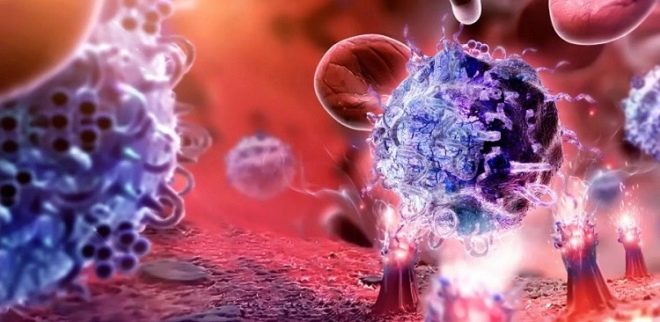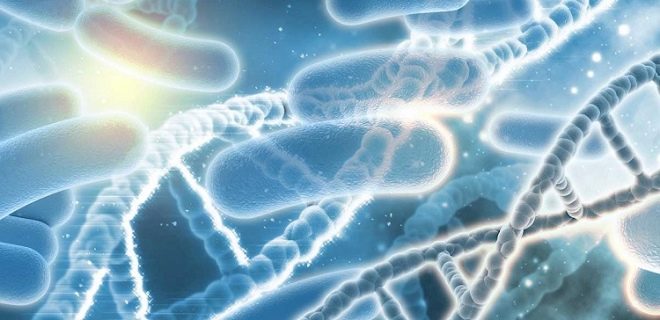Psychosomatics of autoimmune diseases in adults and children
Autoimmune diseases are among the most mysterious. Neither scientists nor doctors can yet say with certainty for what reasons the immunity, which should protect a person, turns its aggression on the cells of its own organism. At the same time completely healthy, normally functioning cells are destroyed, which is why the symptoms of the disease develop.
Increasingly, doctors tend to see self-destruction in autoimmune processes, that is, pathological processes triggered by the person himself. There are several main psychosomatic causes of autoimmune pathologies.
general information
In the very name of these diseases lies their essence, both physiological and psychosomatic. The name comes from the Greek word authos - “itself”. The clinical manifestations of these diseases may be different, but the essence is the same - the body itself systematically destroys the healthy cells of one or another organ or system. It is still difficult to understand why the immune system begins to produce antibodies against its own cells, why aggressive clones of killer cells begin to multiply, but the result of their work is obvious: a disease appears.
It is believed that certain organ diseases, inflammatory or infectious, can affect these processes, as a result of which the immune system remembers not only the pathogen (virus, bacterium, fungus), but also begins to identify the cells affected by them as alien. Sometimes the cause is a violation of the integrity of the body.
In medicine, for example, there are cases when, after losing an eye as a result of an injury, a person also lost a second eye, but for autoimmune reasons, because the cells of the eye tissue were perceived by the immune system as foreign. Frequent anal sex with ejaculation in the rectum often leads to the development of autoimmune infertility, in which a large number of women produce antisperm antibodies that kill male sex cells before they reach the egg.
Sadly, most autoimmune ailments are chronic and very poorly treatable. In the therapy itself, while using only special drugs-immunosuppressants, which suppress the work of the immune system, but weakened immunity does not provide normal protection to the body.
Psychosomatic causes
Psychosomatics considers possible internal causes for the development of diseases of an autoimmune nature, she is looking for the very "self", which reverses defense cells to destroy their relatives.
Most often, experts in the field of psychoanalysis of diseases indicate the presence of severe internal conflict in a patient with an autoimmune disease. Usually this conflict is associated with a pronounced split of attitudes and principles of man.
If the parents are desperately proving that everyone is right, and their arguments contradict each other, the child is more susceptible to autoimmune aggression than the kid from a family where there is agreement and like-mindedness.
Often cause of autoimmune infertility, psychotherapists call gender conflict within the same family: a woman competes with a man; a man proves that a woman’s relatives are “bad, wrong”; she is convinced of the opposite.
In almost all patients with autoimmune ailments, researchers found a long-standing, childish conflict that they brought out of their parents' familieswho could not come to a common opinion.While the person is in a more or less understandable situation for him, he is in remission. As soon as he gets into conditions in which he becomes the target of two different points of view and does not know which of them to choose, where to go, he mentally returns to his children's inner conflict, and an aggravation occurs.
Immunity is the protector. But in the case of an autoimmune disease, he becomes the aggressor. A person with such diseases often suffers from a feeling of total defenselessness, he is afraid of the world, weakness is manifested, often alone, but outwardly he tries not to show his problem, creates the illusion that he is strong enough.
Psychoanalysts have concluded that many patients with a wide variety of autoimmune ailments have much in common. Experts noted that all patients have an increased level of anxiety, they are often depressed, cannot easily and naturally express their feelings, thoughts and emotions, are lost in stressful situations. They often begin to see reality turned upside down: take good for bad, bad for good. And they also often summarize (this neighbor is bad, it means that all neighbors are bad, this politician turned out to be a thief, he was imprisoned, which means that all officials are thieves). They do not have tolerance, they do not know how to compromise..
Some of them react negatively to any attempts by those around them to explain, tell, teach, because they are sure that they will not be told anything useful. Such people often want to radically change the world, because the existing one does not please them and does not satisfy them.
They often make successful revolutionaries, leaders of informal groups. Such people are so accustomed to fight with themselves that life without a struggle for them does not make sense.
Diseases and Prerequisites
Since there are many autoimmune diseases, some of them should be considered separately.
- Poliomyositis. Systemic autoimmune destruction of muscle cells. Most often it develops against the background of not only the inner “split” on the emotional background, but also because of the lack of desire to accept everything new. A person lacks motivation and will to move on.
- Multiple sclerosis. The destruction of the structure of the central nervous system, in particular, the cells of the brain and spinal cord. It develops in the presence of internal conflicts against the background of heightened anger, cruelty, in the complete absence of flexibility of thinking and tolerance.
- Systemic lupus erythematosus. Autoimmune connective tissue disease. It develops in people prone to suppressing anger and aggression towards the world and other people. And also at the heart of the disease is irrepressible self-blame.
- Thyroiditis. The autoimmune damage to the thyroid gland suggests that the person tried to take on too much of his own shoulders, took upon himself both his and others' duties, and as a result, the iron could not stand. It also develops among those who very often direct themselves to aggression, scolding themselves for failing to cope with all the responsibilities they have taken in time, or the result of labor is not what was expected.
- Autoimmune cirrhosis. Disrespect for their needs and desires, the refusal to allow themselves to meet the needs. Lack of self-love, tough attitude. Hate yourself and others.
Treatment
In psychosomatic medicine, it is believed that low immunity is a weak defense, an inadequate sense of security, and overly aggressive immunity is in its purest form Samoedzhestvo and self-destruction. Therefore, not only drug therapy should be the basis for the treatment of any autoimmune disease, especially since no medicine that promises a complete cure has yet been created.
A person with an autoimmune disease, regardless of age, needs the help of a qualified psychotherapist. It will help to find that sphere of life, in which a particular, aggravated internal conflict has developed. The solution to this conflict proper and adequate self-esteem will help achieve a stable and prolonged remission: immunity will stop destroying healthy and innocent cells in the body.
It is important to stop blaming yourself and blaming everything. It is important to stop torn between two points of view, to be able to make choices and follow one chosen trajectory. You need to keep track of your thoughts, try to keep your thoughts clean, do not direct negative things towards yourself or others.. Any negative attitude is based on fear. And it is precisely this fear that must be found and eliminated.
In the case of children's internal conflicts, an adult may need hypnotherapy, hypnosis: The therapist will have to eliminate the disastrous consequences of parental actions and replace them with positive attitudes.
Reduced immunity with drugs during the course of treatment with immunosuppressants is, in fact, the same refusal of aggression towards oneself. The psychology of the disease does not imply excessive self-digging.
It is necessary to learn to perceive everything more easily, more simply, directly. If the goal is to recover, it is important to learn patience and forgiveness: without this, communication with others again quickly filled with insults and Samoyed.















